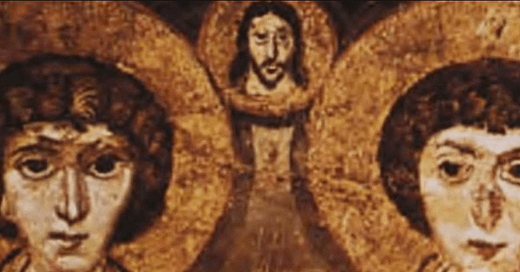Not a Tame Lion
A new documentary about the religious historian John Boswell reveals the soul of a man of immense faith and contradiction, who helped pave the way for gay acceptance.
John Boswell was a superstar in the world of academia, a historian who spoke 14 languages and was continually voted by students as the best teacher at Yale. But his is probably not a name that most people know — though they should.
“Not a Tame Lion” is a forthcoming documentary written and directed by Craig Bettendorf and narrated and edited by Kai Morgan that gives a rich biographical overview of Boswell, known as Jeb to his closest friends. It also serves as a searing look at prejudice against American gays during the 1980s and ‘90s, closely correlating with the spread if the AIDS epidemic and the rise of the religious right, which was also Boswell’s most fruitful period as a religious historian.
He died on Christmas Eve, 1994, of complications of AIDS.
Even as he struggled to hang onto life, Boswell was finishing up what would be his masterwork, “Same-Sex Unions in Premodern Europe,” an exhaustive look at the history of the Catholic Church’s views on marriage. After a dozen years of research, including many trips to Europe to visit libraries and monasteries, Boswell unearthed evidence that the church not only tolerated gay unions, but actually performed the services with the liturgical blessings of priests.
Indeed, there are even saints who were reputed to be gay couples, such as the soldiers Sergius & Bacchus, whose love was spoken of as the highest form of purity by the faith. Boswell also researched how in ancient Greece many politicians were men married to other men — and there were even instances of straight men entering sham marriages because it was seen as helping their career!
Boswell’s work, along with earlier seminal texts on the relationship of the church to homosexuality, is seen today as laying the groundwork for wide acceptance of gay marriage. Gay religious studies are now referred to as “before Boswell” and “after Boswell.”
The filmmakers gather a wide array of friends, colleagues, former students and admirers who speak about Boswell. They talk of a man who was committed to studying history but was also a vibrant friend and supporter of those battling HIV.
He was also a man of profound contradictions. Boswell came from a military family and never came out to them before dying at age 47. Although he was in a longterm relationship with Jerry Hart, he always referred to him as his close friend rather than companion or boyfriend.
Boswell was himself a devout Catholic, converting from his family’s Episcopalian faith while barely a teen. Rather than hating the modern church that housed homophobic figures like Jerry Falwell, he fought on its behalf from the inside, pushing priests and parishioners toward acceptance of gay followers of the faith.
For this, Boswell often found himself attacked — not only from the right, but also from the left, where gay activists of the day dismissed him as an apologist for the church.
Boswell’s siblings make appearances to talk about the gentle but willful man behind the professor’s cloak, along with the pastor of his church during the final years of his life. Friends speak admiringly and intimately of how much he meant to them beyond his brilliance as a religious historian.
The documentary could have used some more polishing and trimming in the editing phase. The last half-hour or so is fulfilled with testimonials and lectern speeches singing Boswell’s praises, which would have been better replaced with briefer interviews with those same people. The more the movie wanders away from Boswell himself, the lesser its impact.
The filmmakers were also challenged by the fact that, although there is plenty of audio of his classroom speeches to include along with photographs, there apparently is precious little video of Boswell. Indeed, only a single piece is included at the end, though it’s well worth the wait.
Boswell practically vibrates with energy in speaking about the need to include gay men and women in the conversation about equality and discrimination, often swaying out of the frame as he makes his points with evidence and earnestness.
I’d never heard of John Boswell before seeing “Not a Tame Lion” — a phrase attributed to author C.S. Lewis in speaking about our relationship with God, which he later used as an allegory in hisbooks. Whatever your own faith may or may not be, Boswell was clearly an amazing human being and servant of reason, one who deserves to be lionized.






